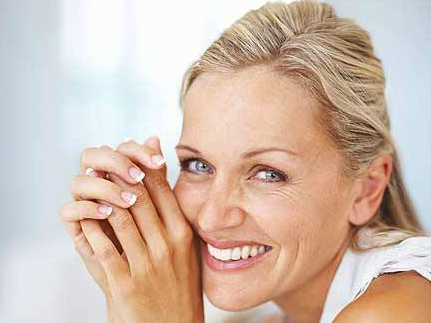Wrinkles, hyper pigmentation and greying hair add decades to your chronological age. Though many cosmetic companies assure you of reversing the signs of early ageing, are they enough to compensate for the wear-and-tear of the cells caused by years of living a sedentary and unhealthy lifestyle and exposure to ultraviolet rays and pollutants?
What is premature ageing?
Ageing is a natural phenomenon occurring due to the interplay between genetic, metabolic and environmental factors. The rate of ageing is an actively regulated metabolic process and so is not fixed. Premature ageing refers to the unnatural acceleration of the natural process of ageing. Possession of certain unfavorable genetic variants and/or an unhealthy lifestyle can become the cause of premature ageing, reflecting the importance of your well being both from the inside and the outside.
What are the factors that speed up the process?
Skin health correlates with the genetic makeup and metabolic condition, and is influenced by environmental and lifestyle-related factors like nutrition, exercise, personal habits and stress. Our body cells are exposed to the damage provoked by external and internal stressors including heat, radiation, pollution, genetic variations, excess glucose, oxygen free radicals, and collagen breakdown among others. The rate at which we age is determined by the ability of our body cells to cope with this damage.
What are the lifestyle changes that can help delay the ageing process?
A healthy lifestyle can postpone the visible signs of skin ageing and favorably influence the longevity of the skin. So focus on a balanced diet, drink lots of natural fluids and make sure that your day doesn’t end without an adequate intake of fruits and vegetables. A simple pranayama or yoga for a few minutes can relax your mind, while easy floor exercises and brisk walking can contribute to your fitness level. Indeed, the inside of the body must always be made to work in tandem with the outside of the body.
How does one understand that the body is ageing faster compared to the chronological age?
Skin changes are amongst the most visible signs of ageing. Skin ageing is evidenced by wrinkles, age spots, dryness and sagging. Ageing skin appears thinner, less plump, more pale, and translucent; and it repairs itself more slowly than younger skin. Overt signs of premature ageing as noticed by one’s self, or by comments on our appearance from others, tell a lot about our ageing tendency. But a genetic assessment on age-regulating genes can provide strong insights on ageing rate.
What is the role of gender in the ageing process? Do women age faster than men?
Dermis (the skin layer lodging skin-firmness protein, collagen) in men is much thicker than in women, hence men have a higher collagen density. As collagen relates to skin ageing signs, assumedly a woman’s skin appears about 15 years older than a man of the same age. Men seldom use sunscreens; hence UV damage negates the benefits of slowed intrinsic ageing in men, shadowing the noticeable difference.
How can understanding genetics help age better?
You are unique, so is your skin. Though the human genome sequence is 99.6% identical in all people, a small genetic change, or variation, that occurs within a person`s DNA sequence can have an impact on his/her health. Genetic assessment will give you a clear picture of your genetic information in relation to your health condition and ageing pattern. The skin might exhibit similar signs of ageing from the outside, but from the inside its genetic and metabolic regulations stand unique. Managing genetic risks for premature ageing by appropriate lifestyle changes can help us age better.
Source: Zee news


